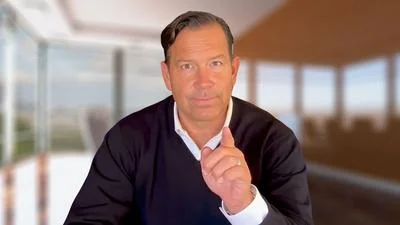The escalating activities of Mexican drug cartels have become a significant concern for the United States, affecting communities well-beyond states on the southern border. These transnational criminal organizations are employing increasingly sophisticated and ruthless tactics to expand their illegal operations, posing a severe threat to public safety and national security.
The cartels' tactics include sophisticated social media recruiting programs to lure American citizens into criminal networks.
"Many Americans are not aware of the fact that the drug cartels in Mexico, who have no regard for human life, are routinely using social media platforms to recruit Americans to assist them with their smuggling operations,” according to Brandon Judd, President of the National Border Patrol Council. "We see teenagers, some of whom are not even old enough to have a driver’s license, lured into transporting illegal narcotics and aliens,” he said.
Huge Profits
The financial revenues of the cartels' operations is staggering. In 2021, cartels made an estimated $13 billion just from human trafficking and smuggling, according to the US House Committee on Homeland Security.
US Rep. Neal Dunn, a Florida Republican who represents the Tallahassee area, provided a rough calculation of cartel revenues from smuggling illegal immigrants into the US. “Look at every human that comes to the border, multiply that times $8,000 each for the cartels allowing them to get there, and run that out over a year,” he said, claiming this will generate total annual revenues for the cartels of roughly $15 billion. "They're not paying taxes on that—that's just cash,” he said.
The cartels profit off of every illegal immigrant, according to Border Patrol experts. "Now nobody crosses without paying the cartels,” Chief Border Patrol Agent John Modlin said. “The cartels determine when people cross... and how many people cross at a time—it’s all controlled by them,” he said.
The production and sale of fentanyl is another extremely profitable revenue generator for the cartels. According to DEA experts, it costs about 10 cents to produce a fake prescription pill laced with fentanyl, which can be sold for $10-$30. Ten kilos of fentanyl is worth about $20 million but only costs about $50,000 to produce. The Sinaloa cartel is reported to be reaping billions in profits from the fentanyl trade alone.
Innovative Smuggling Techniques
The problem is made harder to detect because the cartels' use of technology to smuggle drugs is evolving. "Cartels are using drones to penetrate the United States airspace, and they’re dropping off packages of fentanyl,” according to Rep. Tony Gonzales, a Texas Republican who represents the largest stretch of US border with Mexico.
In addition the cartels are now using sophisticated money-laundering techniques, including the use of real estate, cryptocurrencies, and trade-based money laundering, according to financial crime experts. The cartels also use Chinese informal money exchange systems to launder their profits, making it difficult for U.S. law enforcement to track and seize the funds.
Operational Control and Violence
Another Texas Republican, US Rep. Dan Crenshaw, says the cartel problem is entrenched. "The cartels have operational control over our southern border, facilitate and take advantage of our immigration crisis, and are killing tens of thousands of Americans every year with fentanyl,” he said in a 2023 statement.
Even small and rural communities are not spared from the negative impacts of cartel activities. "Small and rural agencies are not immune from the negative impacts caused by the activities of drug cartels," said Sheriff Jeff Richard of Franklin County, Kansas. "Cartels make more money in trafficking people than they do in trafficking substances."
Mexican cartels, particularly the Sinaloa Cartel and the Jalisco New Generation Cartel (CJNG), have established extensive networks within the U.S. The networks facilitate the distribution of methamphetamine, cocaine, heroin, and fentanyl across the country, including remote areas like Montana.
According to a February statement by DEA Administrator Anne Milgram, “the Sinaloa and Jalisco Cartels use multi-city distribution networks, violent local street gangs, and individual dealers across the United States to flood American communities with fentanyl and methamphetamine, drive addiction, fuel violence, and kill Americans.”
The expansion has led to increased drug availability and associated violence in communities far from the southern border. The Wall Street Journal reported earlier this year that an entire community in Montana was nearly wiped out by the incursion of a Mexican drug cartel that moved on to other communities when there were no more customers in the community for its deadly products.
According to Drew Wrigley, Attorney General of North Dakota, "all of America is now a border state.” he made the remark in testimony about cartel operations in his state before the House Judiciary Committee in May.
Shifting Threats
The landscape has evolved significantly over the years. "When I was in New York in the drug enforcement task force, the primary threats were the Colombian cartels, and then it evolved into the Mexican cartels," recalled Derek Maltz, former Director of the Special Operations Division at the U.S. Drug Enforcement Administration. "Now the cartels are doing everything in the United States, but with the deadly fentanyl and the mass amounts of deaths, it's a game changer.”
According to DEA Agent Colin Dickey, "Mexico-based drug cartels should never be underestimated for their power and global reach.” Dickey leads DEA Operations in Eastern Missouri, which announced June indictments of cartel members operating in the state.
In Mexico, cartels have infiltrated various legal sectors such as fisheries, logging, and agriculture. They extort businesses and dominate these industries to diversify their income sources. Lawmakers are only beginning to question the extent to which the cartels have also infiltrated legitimate businesses in US communities.
Political Consensus to ‘Confront the Cartels'
Bipartisan agreement on the severity of the problem is growing. Presidential candidate Robert Kennedy Jr., stated in a media post that "Democrats and Republicans can agree that the humanitarian nightmare that has resulted from essentially handing immigration policy to the drug cartels is unacceptable.” He said drug cartels have mixed drugs, immigration, and human trafficking into a multi-billion dollar enterprise. "We need to take back control,” he said.
Congressional candidates are embracing policies that would confront the cartels as part of their pitch to win elections. Sam Brown, a West Point graduate and candidate for Senate in Nevada said that if elected, he would work to label the cartels as terrorist organizations, "and we will use the military to take them out,” he said.
Similarly, Arizona Republican congressional candidate Abe Hamadeh, a former Army Reserve member and Maricopa County prosecutor, said any Mexican cartel “must be classified as a foreign terrorist organization.” His state legislature passed a resolution in 2023 with bipartisan support calling for cartels to be designated as terrorist organizations, but it was vetoed by Governor Katie Hobbs.








